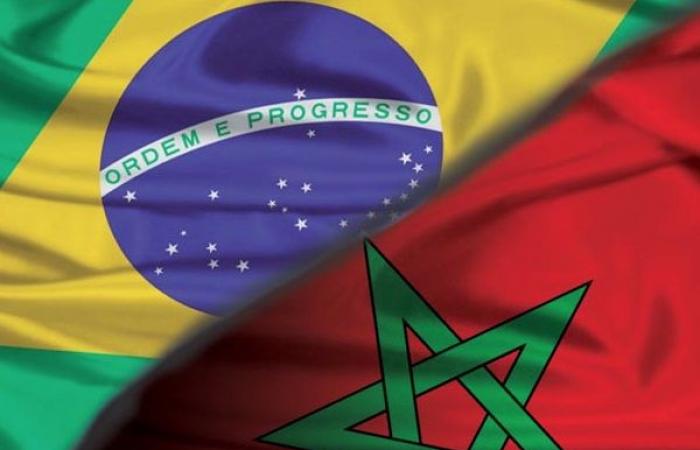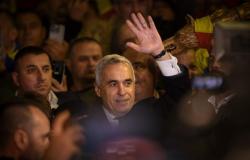Economy, diplomacy, tourism: so many spheres where each side finds in the other an ally commensurate with its ambitions, like a game of mirrors. Ties are strengthening and weaving a South Atlantic bridge where distances dissipate, bathed in the clarity of a strategic dialogue.
“This is precisely the key issue of this flourishing partnership: our shared Atlanticity, a trait that defines our common essence and shapes the contours of a promising destiny,” underlines Brazilian political scientist Fábio de Queiroz, in an interview with the MAP.
“The construction of an Atlantic identity as a powerful asset,” he maintains, “must be better understood and exploited,” to transform the Atlantic coast into a crossroads of human communion, a pole of economic integration and a focus of continental and international, as desired by His Majesty King Mohammed VI.
An enriching partnership
Morocco-Brazil relations, two influential players in their respective regions, are flourishing thanks to a trust cultivated in mutual respect, a shared vision: that of a balanced international order, of more global governance. fair, and ever more ambitious South-South cooperation.
In the eyes of Brazilians, Morocco is “a solid partner, a gateway to Africa”. If ties were already strong under the Bolsonaro era, they are further strengthened with Lula, defender of multilateralism and the global South. Since his return, the Brazilian president has strived to position his country as a major player. And Morocco is investing in a future where Brazil will have a say. Also, the South American giant is one of the pillars of the BRICS or the G20.
Behind the scenes of diplomacy, the exchanges were of rare intensity. In mid-May, Rabat and Brasilia expressed a “perfect convergence of views” on multiple regional and international issues. The meeting, three weeks later, between the Minister of Foreign Affairs Nasser Bourita and his Brazilian counterpart Mauro Vieira led to the formalization of a multidimensional strategic partnership, embracing sectors with high potential such as agri-food, green economy and logistics. In October, Senate President Rodrigo Pacheco will visit Morocco, illustrating the renewed momentum of increasingly broad cooperation.
Especially since, for the first time, Brazil welcomes Morocco’s “serious and credible efforts” to move towards a resolution of the dispute around the Sahara, within the framework of the autonomy initiative presented in 2007.
The legal framework will also be strengthened to include strategic sectors such as the fight against transnational crime, defense and the aeronautical industry. And that’s not all! The creation of a military attaché post in Brasilia consolidates a partnership in sectors where Brazil excels.
“If the partnership develops both in terms of volume and quality, there still remains vast potential to be exploited, by capitalizing on the geostrategic importance of the Atlantic,” notes Fábio de Queiroz, highlighting the Rabat- Brasilia as a reference point.
Bridges of wings and oceans
Under a sky finally freed from the shadows of the pandemic, Royal Air Maroc has just launched its direct Casablanca-Sao Paulo route this month. Five years of absence, and yet, it’s not just a new route. It is an invitation to discovery, to dialogue, a bridge between two cultures.
The opening a year earlier of an office of the Moroccan National Tourism Office in the Paulista capital had already outlined the contours of this ambition. Doubling the flow of Brazilian tourists – estimated at 50,000 per year – seems within reach. The aim is to attract one of the most dynamic markets in the world. And beyond Brazil, an entire Mercosur, with nearly 300 million souls, is opening up.
On the waves, another ambition looms: that of a flourishing trade. Far from being a simple announcement, preparations are underway for an agreement on mutual administrative assistance in customs matters. In addition, a memorandum of understanding intends to promote Tanger Med as a logistics hub to Brazilian operators. At the crossroads of the world’s main maritime routes, this port positions itself as a natural bridge between Brazil and Europe, the Mediterranean and the Gulf.
Through the exchanges…
The business is growing with each passing month. In 2024, from January to September, trade reached $2.05 billion. The Kingdom has a surplus of 197 million and asserts itself as a strategic supplier of fertilizers for Brazilian agriculture.
In detail, Moroccan exports to Brazil amount to 1.123 billion, up 4.72%. Mineral or chemical fertilizers dominate this flow: 51.19% for those containing two elements and 34.52% for phosphates. On the other hand, imports of Latin America’s largest economy reached 926 million (+1.58%), mainly cane sugar (69%), corn (18.45%) and cattle (2.17%). %).
The Morocco-Brazil Business Forum, scheduled for next July in Casablanca, promises to be a key step in economic relations. The entry into force of the Investment Facilitation Agreement, coupled with the recent visit of a delegation of Brazilian businessmen to Rabat, is already paving the way for new opportunities.
On both sides, Rabat and Brasilia do not just dream of a common future, they shape it. The Royal Atlantic Initiative embodies this vision of South-South cooperation. It advocates a transformation of the Atlantic into an area of peace, security and shared prosperity in the face of global challenges such as food security and climate change. Is it not, in fact, a strategic crossroads, bringing sustainable solutions for a world in search of balance and stability?
MAP / Wahiba Rabhi






